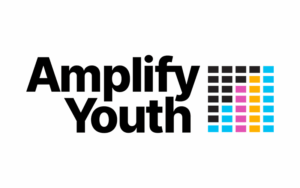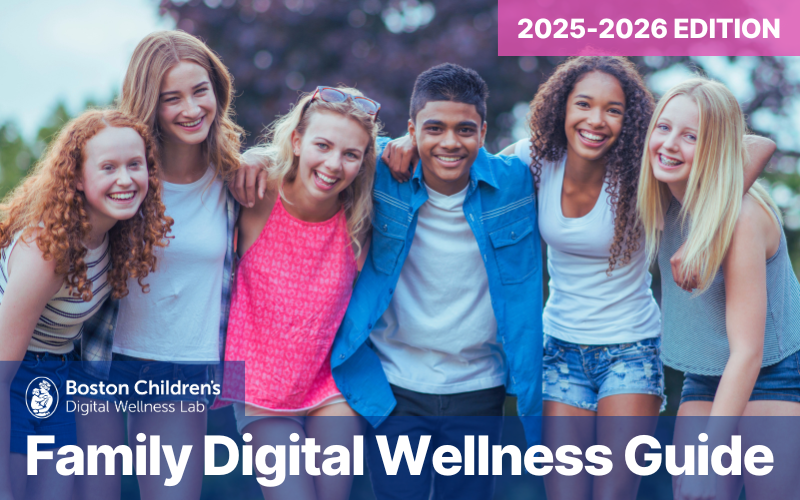In a world where toddlers are swiping through screens and tweens are building their online personas, young people need to be equipped with tools and knowledge that will help them to navigate the digital landscape safely, respectfully, and productively. But how can parents and caregivers ensure that kids understand the ways they can use media and technology in positive ways, while avoiding negative effects?
While we often focus on monitoring kids’ activities online as our primary mechanism for ensuring safety, our research is increasingly showing that it may be more effective to monitor while also empowering youth with the skills they need to be responsible digital citizens. So, let’s dive into some of the essential skills kids and teens need to master, from digital media literacy to privacy and security, and uncover the keys to unlocking a safe and enriching online experience.
1. Unleashing the Power of Digital Literacy
Think of digital literacy as the superhero cape your kids can wear to navigate the ever-evolving online world. By sitting with your children, from toddlerhood through early adulthood, while they engage with media, you can ask them questions about what they’re seeing/hearing and how it makes them feel, why they think those messages are being shared with them, whether they believe it’s accurate or from a specific perspective, and what alternative messages might be possible. This is one way to teach them how to:
- Unmask the truth by recognizing reliable sources of information and differentiating between facts and opinions.
- Battle the forces of misinformation by understanding that not everything online is true and learning to verify claims using multiple sources.
- Conquer media bias by being critical consumers and recognizing potential biases, stereotypes, and hidden agendas in the content they encounter.
Pulse Survey says: A majority of teens shared that they understood the reporting and blocking functions but only blocked or reported content and users once a month or less.
What parents can do: By reviewing the purpose and impact of blocking and reporting together, parents can help their kids create safer, more welcoming digital spaces for all.
2. Embracing the Role of Responsible Digital Citizens
Just like citizens in the real world, digital citizens have rights and responsibilities. Even the youngest children are highly tuned into concepts of fairness; as they get older, tweens and teens begin to feel strongly about social justice. You can leverage these instincts to guide your kids in developing their sense of digital citizenship.
- Talk with your child about behaviors they see online – both the positive and the negative – to help them understand how it might feel for others to read or see those things and what they might be able to do to interrupt problematic or harmful behavior.
- Explore the concept of a lasting digital footprint. Review your child’s social media profile alongside them to dive into how they might feel if a given photo or post surfaced when they are 20, 40, 60 years old. How would they respond if their grandma or aunt or boss asked them about it? This exercise can elicit giggles but can also help them to think twice before sharing content that could have lasting consequences.
- Learn together about the ways they can use reporting tools in their preferred online spaces, to help them to feel confident standing up against inappropriate content or behavior.
Pulse Survey says: Just 35% of surveyed teens agreed that platforms are effective in keeping them safe.
What parents can do: Combine these privacy and safety tips with platform safety features to help empower kids to manage their online safety.
3. Protecting Their Data and Identity
Equip your kids with the armor they need to shield their personal information from prying eyes and potential risks. This starts early, by showing them how you protect your own online identity, and gradually builds to helping them to do this work themselves. Encourage kids to:
- Master the art of creating strong, unique passwords for each online account. You can make up a series of mnemonic password devices that have meaning for your family, to help build the concept of less hackable passwords early. For example, if your family loves to walk in City Park together after dinner, you could help your child to remember “We love walking 2 City Park 5 nights per week!” for a strong password that is memorable but less easy to guess: “Wlw2CP5n/w!”.
- Enable privacy settings on social media accounts to limit the visibility of their posts and personal information. Together, you can take a tour through each other’s accounts as a “public viewer” to identify what is viewable by the outside world and what you want to lock down to only friends and family.
- Practice discretion when sharing personal information online, including their full name, address, phone number, and school. You can use hypothetical “what if” situations to practice ahead of time so that, when a new online friend asks for identifying information, your child is more prepared to navigate the request in a way that feels comfortable for them and you.
Pulse Survey says: “50% of teens surveyed report using a smartphone for 5+ hours on a typical weekday (17.8% of the total sample reported 9+ hours of use).”
What parents can do: Help children develop a more mindful approach to technology use and build a well-rounded, fulfilling lifestyle that includes digital and real-world experiences.
4. Cultivating a Mindful Approach to Digital Engagement
Encourage your kids to be mindful of and intentional about their online activities, reflecting on their actions and decisions. Guide them to:
- Seek a balance between online and “real life” activities. Adults can model this by intentionally setting down devices for conversations, mealtime, and activities like outdoor fun or hobbies. With younger children, it can help to name that you are setting down your phone to focus on a conversation or a fun activity. With older children, you can ask them to make a list of what they could be doing in a given moment and to name why they are choosing an app or other media over some of the other options.
- Ask themselves what the consequences may be of a given post or share before hitting submit. How might that choice make others feel? Are they okay with eliciting these feelings and would they be comfortable defending their actions? You can talk about a time you posted something and it hurt a friend’s feelings or about a time that a photo came back to haunt you – what do you wish you had done differently? This can teach kids that no one is perfect and how we can learn from our mistakes even as we proactively attempt to avoid them.
- Reflect regularly on their digital habits and adjust as needed to ensure a healthy relationship with technology. Teens in particular can be encouraged to work to set and manage against limits themselves, to help them to build their own self-regulation and monitoring habits.
Pulse Survey says: 57% of teens felt that parents considered their perspectives when setting media-related rules.
What parents can do: Get their input and buy-in to lay a foundation for healthier digital engagement.
Essential digital skills are a constant work in progress as kids grow and technology and media continue to innovate. By empowering our children with the foundational skills needed to address their current and future digital environments, we can help them to make responsible, respectful, and healthy choices online. Kids’ understanding of what healthy media use looks like is often heavily influenced by what they see their loved ones doing, so one of the best ways to empower is to practice these essential skills ourselves. We can support young people’s journey as responsible digital citizens with open communication and guidance, helping them confidently navigate the digital world and unlock boundless possibilities.
We invite parents and other caregivers to explore our parent technology guides for more in-depth resources, tools, and support to help them navigate digital citizenship and well-being alongside their kids.
Learn more about how teens think about their digital media use, family rules, and online safety features in our March 2023 Pulse Survey.








